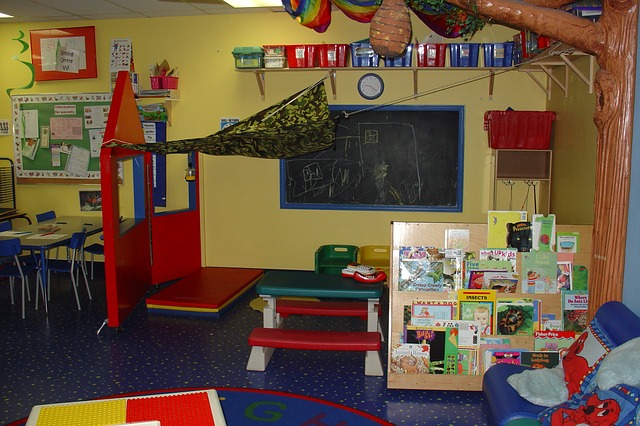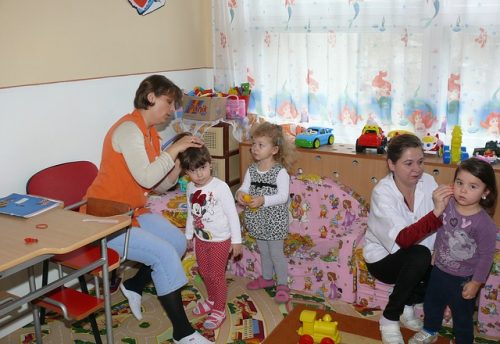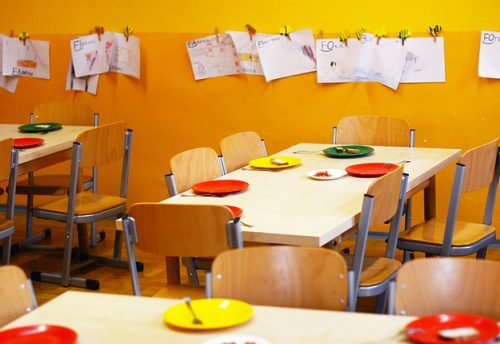
Advantages And Disadvantages Of Preschool
Advantages And Disadvantages Of Preschool
In this article, You will learn about the advantages and disadvantages of preschool. A preschool, also known as nursery school, pre-primary school, playschool or kindergarten, is an educational establishment or learning space offering early childhood education to children before they begin compulsory education at primary school. It may be publicly or privately operated and may be subsidized from public funds. Preschool generally runs between the hours of 9:00 am and 3:00 pm similar to school hours although this may vary by state and by service so check with the provider.
Through Cognitive, Psychosocial and Physical developments-based learning a child in preschool will learn about their environment and how to verbally communicate with others. Children who attend Preschool learn how the world works around them through play and communication. During this school year children will learn how to properly express themselves, share, communicate with their classroom, follow classroom rules, proper hygiene and how to sleep during naptime.
They’ll learn simple English like how to identify all the letters in the alphabet, write their full name, the beginnings of phonics and how to trace all the letters in the alphabet. In Math class, they’ll learn how to identify basic shapes, recognize size difference, count to 100, how to trace numbers 1-10 and simple adding & subtracting.
In Science class, they do simple things learning the names of different types of weather, the names of the season and animals name, environmental habits & sounds. In Social Studies they’ll learn about places we see/visit in everyday life, how things work in certain public places and what are the names & jobs of the people who work in our communities. During recesses-playtime-lunchtime, children will interact with their peers playing dress-up, interacting on the playground, eating lunch/snack together and how to play certain games with others.
Advantages –
1. Since preschool provides children with space where they can learn appropriate classroom behavior at a young age, it can help your child develop a sense of self and independence. Your child will not have to waste time trying to get adjusted to other children, the classroom environment and the lessons he is supposed to learn after he has joined the school.
2. Another advantage of a preschool is that most include a structured learning day with a lot of varied activity—with a significant portion of it focused on learning. Daycares usually provide activities (including recess, naptime, and lunch). Preschools will include more educational opportunities to foster early reading abilities, art, and even some math and science concepts.
3. Good programs feature a wide variety of fun activities – including singing, dancing, arts and crafts, storytelling, free play, and both indoor and outdoor games and projects – designed to teach children different skills. Children may also learn some academic basics such as counting and the alphabet.
4. Preschool will help your toddler develop important skills, such as taking turns, listening to others, helping one another, etc. Interacting with other children of the same age can teach your child to communicate better.
5. Preschools and daycares offer trained staff that is often required to take courses and become certified in childcare, or they are required to have a degree in education or child studies. This allows you the confidence in having your child under the care of these professionals who are knowledgeable about your child’s needs and development at any age.
Disadvantages –
1. Lack of One-On-One Time :
Some argue it’s best to keep young children at home for most of the years before formal schooling begins (at least until the age of three). Although preschools tend to have low teacher-to-student ratios, it isn’t one-to-one. This means a teacher’s attention is often divided and there is less individualized attention than at home. And the importance of one-on-one time for some kids cannot be disputed. That said, most agree that at a certain age, usually four or five (at the oldest), kids need lots of interaction with their age-peers. This helps them develop socially, emotionally, and cognitively.
2. Specific Hours/Days :
While the schedule of the daycare can be an advantage, it can also be a disadvantage. Many preschools are not in session during holidays or the summer, often for extended periods of time. This might not coordinate well with your own work schedule, leaving you to figure out an alternative for those periods of time, which can also cost you more money.
3. Learning too Early :
Some preschools, it’s claimed, force kids to learn too early. This is a special concern with academic programs. Learning subjects such as reading, writing, and math before one’s ready can lead to frustration and interfere with a love of learning. That said, many alternative preschools, such as Montessori, Waldorf, and Reggio Emilia, normally delay introducing certain subjects until kids are interested and ready.
4. Limitations on Creativity and Free Exploration :
Critics of kids attending preschool argue that introducing them to the idea of a teacher being the sole source of information can limit their range of learning and ability to think creatively. When 4-year-olds attend preschool, they unconsciously narrow their thinking and only consider the information their teacher provides. In contrast, kids who don’t attend preschool tend to search for wider ranges of information and consider more options.
5. Learning too Early :
Some preschools, it’s claimed, force kids to learn too early. This is a special concern with academic programs. Learning subjects such as reading, writing, and math before one’s ready can lead to frustration and interfere with a love of learning. That said, many alternative preschools, such as Montessori, Waldorf, and Reggio Emilia, normally delay introducing certain subjects until kids are interested and ready.
Looking For Best playschool in Indirapuram ?






34 Comments